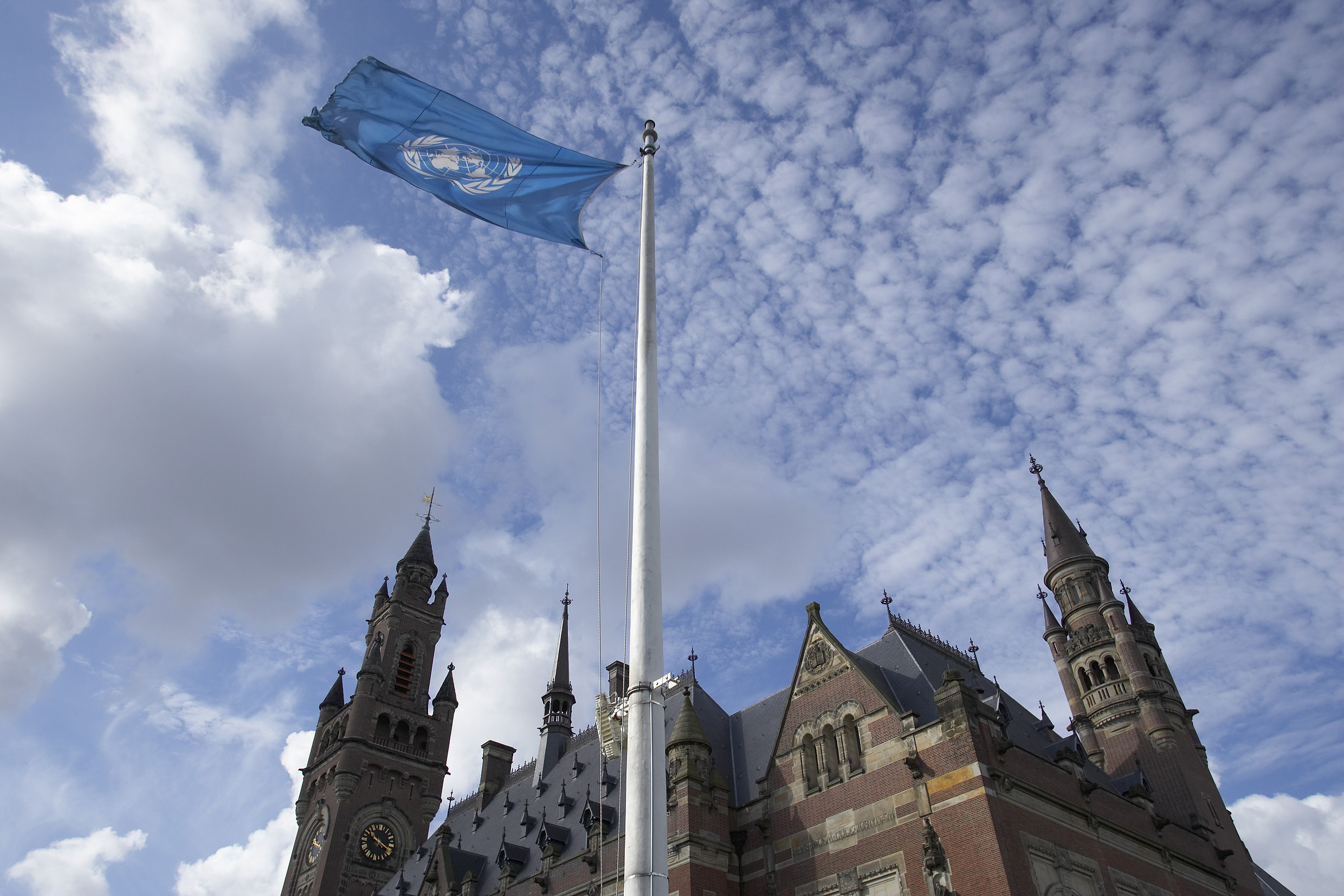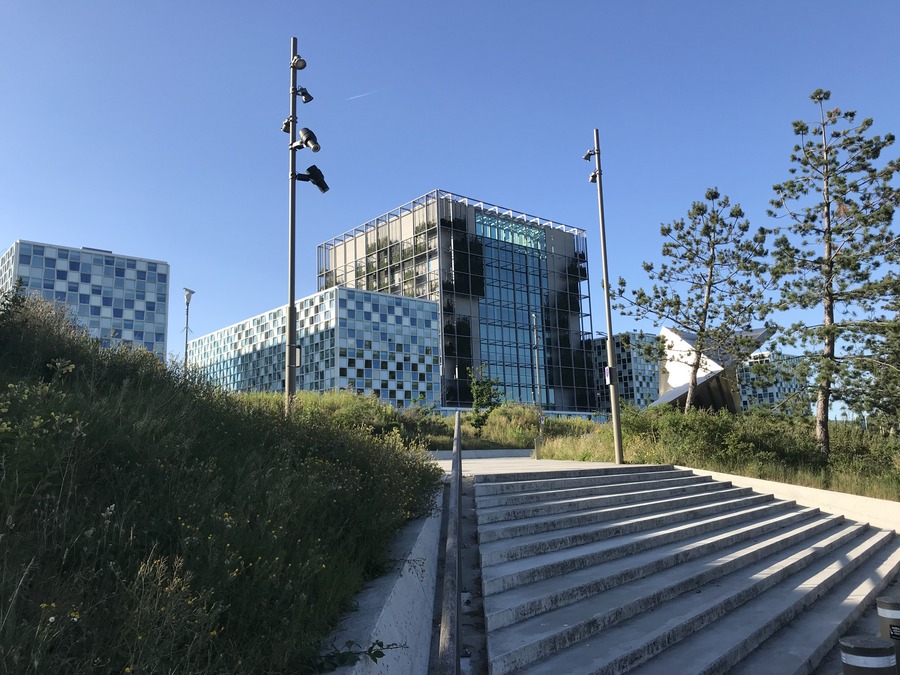Thoughts on the ICJ’s Modified Provisional Measures Order in South Africa v. Israel

Published by The Lawfare Institute
in Cooperation With

Editor’s Note: On May 26, before this essay went to press, Israel bombed two senior Hamas officials who were allegedly meeting in a displaced persons camp near Rafah. The ensuing fire caused dozens of deaths and injuries to civilians who thought they were in a designated safe zone. Israeli Prime Minister Netanyahu called the strike a “tragic error”, while a chorus of condemnationcalled it a “massacre.”
On May 24, the International Court of Justice (ICJ) granted South Africa’s request for modified provisional measures and ordered Israel to “immediately halt its military offensive” in Rafah, while calling on Hamas to release the remaining hostages immediately and unconditionally.
The ICJ was created to adjudicate disputes between states and to provide advisory opinions to organs of the United Nations. The Security Council was created to maintain international peace and security. Yet here we are, over 230 days into a war that most Palestinians and Israelis did not want, and that few could have imagined. While the Security Council seems incapable of doing its job, there has been remarkable consensus among the judges on the ICJ. Within the constraints of their limited jurisdiction under the Genocide Convention, the judges have issued a series of orders aimed at curbing the impact of Israel’s military campaign on Gaza’s civilian population. Israel has objected to the Court’s jurisdiction and claimed that it is acting consistently with the ICJ’s orders, which require it to refrain from violating the Genocide Convention. Meanwhile, unprecedented levels of devastation and the destruction of civilian life in Gaza continue.
The Court’s New Order
The ICJ’s May 24 order follows orders of March 28 and January 26. Each order has been progressively more explicit and concrete, although interpretive disputes persist. The Court has jurisdiction to issue provisional measures based on its determination that Palestinians in Gaza have “plausible rights” under the Genocide Convention to be protected from actions aimed at destroying them as a group in whole or in part. (The International Criminal Court (ICC) can try individuals for alleged war crimes and crimes against humanity, in addition to alleged acts of genocide.) The ICJ has also repeatedly called for the “immediate and unconditional release” of Israeli hostages.
Thirteen out of 15 judges on the ICJ determined that the current situation in Rafah warrants imposing three new substantive measures, plus a reporting obligation. The new measures require Israel to:
- Immediately halt its military offensive, and any other action in the Rafah Governorate, which may inflict on the Palestinian group in Gaza conditions of life that could bring about its physical destruction in whole or in part;
- Maintain open the Rafah crossing for unhindered provision at scale of urgently needed basic services and humanitarian assistance; and
- Take effective measures to ensure the unimpeded access to the Gaza Strip of any commission of inquiry, fact-finding mission, or other investigative body mandated by competent organs of the United Nations to investigate allegations of genocide.
As commentators have noted, the phrasing and punctuation of the measure regarding Israel’s military offensive in Rafah allow for different interpretations. Some have interpreted the order as requiring that Israel halt its military operations in Rafah entirely. Others, including several judges who wrote separately to clarify this point, have emphasized that the Court’s authority is limited to adjudicating disputes about the interpretation and application of the Genocide Convention, and that nothing in the Court’s order prevents Israel from conducting military operations to rescue hostages and to defend itself against armed attacks. In this sense, the most recent order (like the previous two) underscores but does not modify Israel’s existing obligations under the Genocide Convention and customary international law. The problem is that Israel maintains that it is complying with those obligations, while Palestinians are starving and dying in the thousands.
Judges who wrote separately include Judge Nolte, Judge Aurescu, and Judge Tladi. Judge Nolte cautioned that, in contrast to the Security Council, the ICJ “is not tasked with the monitoring or enforcement of the Genocide Convention, but only with the settlement of disputes over the ‘interpretation, application or fulfillment of that Convention.” The Court’s authority to issue provisional measures is tied to that dispute resolution function, and is meant to preserve the respective rights of the parties pending adjudication. Judge Aurescu indicated that the requirements of the new measures were already encompassed by the Court’s prior orders. He suggested that the Court could have gone further by reiterating Security Council resolution 2728 (2024) demanding “a lasting sustainable ceasefire” to “underscor[e] the distribution and sharing of the role of maintaining the international peace and security between the Security Council and the International Court of Justice,” and to extend to the ceasefire provision “the legal force” of provisional measures. (Whether the resolution itself legally required a ceasefire has been a subject of debate.) Judge Tladi, from South Africa, emphasized that Israel’s self-defense and the protection of civilian life in Gaza are not mutually exclusive, and that the Court’s orders still allow Israel to conduct “legitimate defensive actions, within the strict confines of international law, to repel specific attacks.”
Judge Sebutinde and Judge ad hoc Barak, from Israel, voted against the new measures, largely on the basis that the existing measures are sufficient. In Judge Sebutinde’s words, “I firmly believe that Israel has the right to defend itself against its enemies, including Hamas, and to continue efforts to rescue its missing hostages. These rights are not incompatible with its obligations under the Genocide Convention. Israel can continue pursuing its legitimate aims of combating Hamas and rescuing its hostages, provided it respects its obligations under the Genocide Convention and the provisional measures indicated by the Court.” In her view, the Court’s opinion fails to account for the broader context of Israel’s military operation and the improvements in providing humanitarian aid since the Court’s March order. For these reasons, parts of the May order amount to “untenable overreach.” In addition, she notes that, as a practical matter, Israel cannot keep the Rafah crossing open for humanitarian aid delivery without Egypt’s cooperation.
Like Judge Sebutinde, Judge Barak worried about the Court becoming “the micromanager of an armed conflict.” A party’s compliance (or lack thereof) with a provisional measures order is a question for the later merits phase of the proceedings, but successive requests to modify provisional measures on the basis of changed circumstances could become the functional equivalent of court supervision. South Africa, Judge Barak cautioned, is “asking the Court to assume the role of the General Assembly and the Security Council.” Moreover, he emphasized, “[e]ven without an order issued by the Court, a military offensive that may result in a violation of a State’s obligations under the Genocide Convention would have to stop.” In his view, the Court’s decision to continue issuing new provisional measures “weakens the regime of the Genocide Convention by using it (or misusing it) to arbitrate an armed conflict.”
By contrast, Judge Nolte explained why he ultimately voted in favor of the additional measures:
The reason for today’s measure is, in my view, that Israel has not sufficiently demonstrated that it can “enable the provision of urgently needed basic services and humanitarian assistance to address the adverse conditions of life faced by Palestinians” without limiting its current military offensive in Rafah (see, in particular, paragraph 46 of the Order).
To find that Israel’s “obligation to prevent, and the corresponding duty to act” plausibly exist, it is not necessary to find that Israel has violated its obligations under the Genocide Convention. For the obligation of prevention under the Genocide Convention to arise, a serious risk of conduct falling within the scope of Article III of the Genocide Convention and the knowledge of a State of such a risk is sufficient. At the present stage of provisional measures, it is sufficient that a risk of conduct falling within the scope of Article III of the Genocide Convention and the knowledge of Israel of such a risk is plausible.
Judge Nolte reached this conclusion after asking Israel at the conclusion of its oral argument on May 17 to respond in writing to a specific question about humanitarian conditions in designated evacuation zones (as contemplated by Article 61 of the Rules of Court), followed by a written reaction from South Africa (as allowed by Article 72). This exchange is posted on the ICJ’s website, unlike Israel’s periodic reports under the ICJ’s provisional measures orders and South Africa’s responses, which are not made public. Although Judge Barak opined in his dissent that these reporting requirements “have not served a meaningful purpose,” self-reporting is a widely used mechanism for promoting compliance with human rights obligations. That said, the adversarial nature of ICJ proceedings may make this mechanism less effective as a way of encouraging the parties to internalize international legal obligations than it might be in other settings.
Assessment and Implications
The knee-jerk charge of “antisemitism” levied against the Court and its judges by some in Israel and the United States was predictable and did not engage with the substance of the opinions or indicate any awareness of or concern for the ever-deepening humanitarian catastrophe. The official joint statement from the Israeli Prime Minister’s Office and Foreign Ministry indicated that “Israel has not and will not carry out a military campaign in the Rafah area that creates living conditions that could lead to the destruction of the Palestinian civilian population, in whole or in part”—a welcome statement, but one belied by the facts on the ground. Whether or not the destruction of the Palestinian civilian population in Gaza could result from Israel’s actions is not for Israel alone to judge.
Some have suggested that Israel cannot be expected to achieve the legitimate war aim of destroying Hamas’s capability to launch another October 7-style attack without extreme civilian devastation; others have noted that international law’s lesser tolerance for civilian “collateral damage” in the post-World War II era means that “even a legitimate aim must be set aside if it is outweighed by the harmful effects of the force necessary to achieve it.” All agree that it is unlawful to intend to harm civilians or to target them directly, which can amount to war crimes and crimes against humanity; whether or not such conduct amounts to genocide turns on a legal assessment that victims have been targeted with the intent to destroy the group to which they belong. That said, Judge Barak’s apparent suggesting that genocide is per se impossible in Gaza because the primary motivation for Israel’s campaign is self-defense does not follow: “The fulfilment of this duty [to protect its citizens and free the hostages] is not in conflict with Israel’s obligations under the Genocide Convention because it stems from Israel’s intent to protect its citizens and not from an intent to commit acts prohibited under the Genocide Convention.” While this might be true on the level of the state (a determination that the ICJ will be invited to make at the merits phase), the reactive nature of Israel’s military operation in the wake of October 7 does not preclude genocidal intent on the part of specific individuals involved in that operation. (It also does not preclude state responsibility for genocide, although the intent requirement for genocide is more readily ascertained at the individual level than the state level.)
South Africa’s repeated requests to the Court for modified and additional provisional measures are likely to continue for the duration of the military operation. This puts the Court in the unenviable position of having to reaffirm the applicable law without any direct means of enforcing it. This feature is endemic to most public law adjudication by international tribunals. This situation puts even more pressure on the ICJ’s expressive function, rather than its dispute resolution function. For example, the closure of the Rafah border crossing to aid deliveries, for which Israel and Egypt have traded blame, figured prominently in the Court’s assessment of the situation, and is currently the subject of diplomatic negotiations. (Judge Barak wrote in his dissenting opinion: “I do not understand how Israel can be expected to ‘maintain open’ a crossing with respect to which it does not have exclusive control.”) As Judge Tladi exclaimed, in a sentence that invites a treatise on the scope of judicial functions: “But the Court is only a court!”
Judge Barak reflected in his dissent that, after a decades-long career as a Supreme Court justice, “The only way that I found to be truthful as a judge was to leave aside the “background noise” and focus purely on the legal reasoning. This is the only common language that we judges have.” While the law might be a common language, it can be spoken in different dialects. Legal reasoning is never unmoored from its social context. Courts should not be micromanaging armed conflicts, but it is natural for countries to turn to the ICJ and other tribunals in the absence of effective action by the Security Council. The perceived righteousness of the cause–on either side of this conflict–does not justify, either morally or legally, the means used to achieve the desired end.
The attention on Gaza is warranted and necessary, but it is also providing Netanyahu’s government with political cover for increased repression elsewhere, and particularly in the West Bank (which Israel historically refers to as Judea and Samaria). Although some reports indicated that Netanyahu was genuinely concerned by the prospect of an ICC arrest warrant, the Prosecutor’s May 20 announcement also lets Netanyahu play the persecution card and attempt to stoke moral outrage against international institutions while Israel is engaged in armed conflict against both Hamas and Hezbollah.
With rockets being launched from Rafah towards Tel Aviv on Sunday, followed by a lethal Israeli airstrike on a tent encampment in Rafah that led to a catastrophic fire, Israel and Hamas continue to view each other as long-term existential threats, despite their obvious power asymmetry. With respect to operations in and around Rafah, international humanitarian law prohibits deliberately co-locating combatants or other military objectives with civilians or other protected persons to deter attacks. However, this does not absolve attacking forces from following IHL targeting rules, despite the contrary view that the proportionality analysis should be modified in cases of systematic use of human shields. Israel’s May 26 attack belies the IDF’s claim that it can engage in a military operation against Hamas in Rafah that does not disproportionately harm civilians. Even if this situation results from Hamas’s decision to embed itself within and under civilian infrastructure, Israel’s self-defense does not necessarily entitle it to “eliminate” Hamas rather than contain the threat emanating from it, which does not demonstrably require the degree of destruction currently being visited upon Gaza as a whole.
On a personal level, it is difficult if not impossible to view anyone who appears to tolerate or support the destruction of your family, neighborhood, or society as worthy of dignity or protection–let alone anybody who is directly responsible for ongoing harm. This is an intrinsic flaw in the proportionality analysis, which by definition is carried out by decision-makers who view the opposing forces as mortal enemies (increasing the value of the expected military advantage) and may be predisposed to devalue civilian lives on the other side of the conflict. Yet recognizing the other’s humanity (on both sides) is precisely what needs to happen, whether under this Israeli government (which is unlikely) or a new one. Meanwhile, Israel will continue to see the ICJ as another “front” in Hamas’s campaign, and Palestinian civilians and Israeli hostages will remain caught in the political and military cross-fire.



.jpg?sfvrsn=564b5f50_5)

